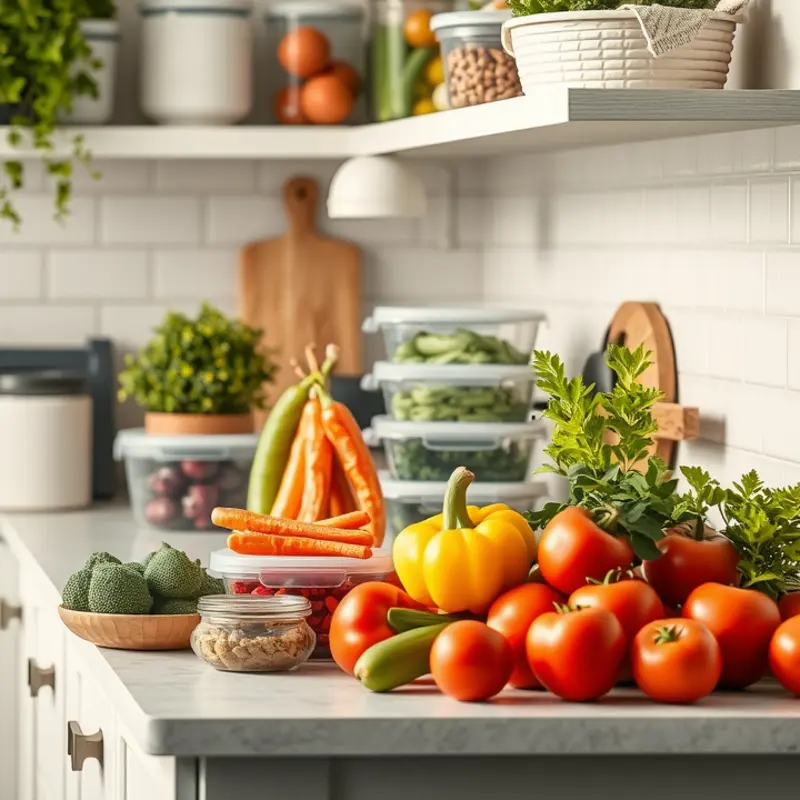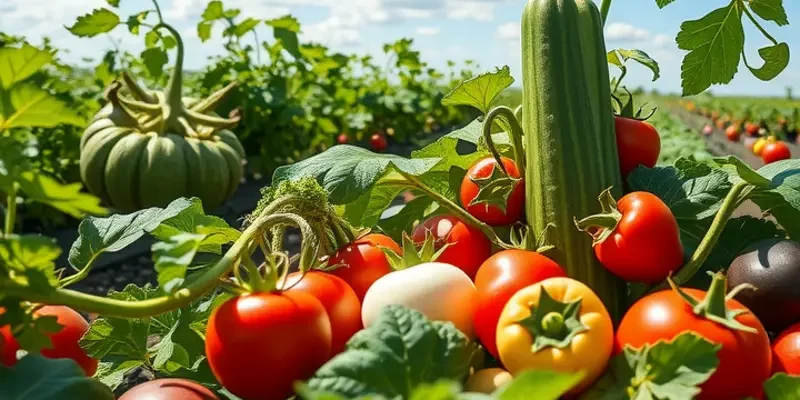Busy schedules often make it difficult to plan and prepare meals. However, with seasonal meal prep, you can save time and simplify your cooking routine. Embracing the flavors of the season while preparing meals in advance can help reduce stress and feed your family nutritious food. Discover effective strategies tailored for individuals and families looking to streamline their meal planning seamlessly.
Embrace Seasonal Ingredients

Using seasonal ingredients in meal prep not only enhances flavor but also adds a delightful variety to your diet. When fruits and vegetables are in season, they are fresher, taste better, and offer more nutrients. Seasonal produce is often more affordable since it’s more abundant and doesn’t require as much transportation.
Exploring local farmers’ markets is a fantastic way to source seasonal ingredients. By purchasing locally, you not only support local economies but also access produce that hasn’t traveled large distances, ensuring freshness. Farmers’ markets also provide an opportunity to discover new ingredients you might not find in regular grocery stores. Engaging with vendors can provide insights into how to prepare or cook unfamiliar produce.
Having a seasonal produce calendar is an invaluable tool for staying informed about which fruits and vegetables are at their peak. Knowing what is in season helps you plan meals that are both satisfying and sustainable. For example, spring is an excellent time to incorporate asparagus and strawberries into your dishes. Meanwhile, fall calls for hearty ingredients like pumpkins and apples.
Incorporating these ingredients into meal prep can be simple and rewarding. Consider the following seasonal ideas:
- Spring: Make a fresh asparagus soup or a strawberry spinach salad. These dishes can be prepped in advance, making them perfect for quick lunches or light dinners.
- Summer: Enjoy grilled zucchini and corn or a succulent berry mix for dessert. These require minimal cooking and maintain the essence of summer freshness.
- Fall: Roasted root vegetables or a comforting apple cinnamon overnight oats are seasonal favorites that can be prepared ahead of time.
- Winter: Stir in leafy greens like kale into stews or bake citrus fruits into your winter desserts. These are not only warming but also bursting with flavor.
By embracing seasonal ingredients, meal preparation becomes a more creative and enjoyable experience. Seasonal eating fosters a greater appreciation for the natural abundance around us and encourages mindful consumption. Additionally, it complements other sustainable practices in the kitchen, such as those discussed in eco-smart kitchen storage, by reducing food waste and minimizing the environmental impact of your meals.
As you integrate these seasonal strategies into your meal prep, you will find yourself more connected to the rhythm of nature, allowing your busy life to harmonize with healthier eating habits.
Streamlined Meal Prep Strategies

Meal prep can transform the way you approach weeknight dinners. By incorporating streamlined strategies, you optimize efficiency, reduce stress, and ensure your family stays nourished. Here, we’ll delve into thoughtful methods, including batch cooking, storing meals effectively, and selecting easy recipes.
Batch cooking ranks high as a game-changer. The idea is simple: dedicate time to preparing larger quantities of staple items that can be used throughout the week. Think grains like rice or quinoa, proteins such as chicken or tofu, and versatile vegetables. With these essentials pre-cooked, you can mix and match to create varied meals without feeling repetitive.
Storage is equally pivotal in this process. Using airtight containers can help maintain the freshness of your prepped ingredients and cooked meals. Labeling each container with the prep date helps keep track of what needs to be consumed first. Some ingredients store beautifully in the freezer, extending your meal prep’s life significantly. This allows you to take full advantage of seasonal produce, preserving nutritional content and saving money.
Ensuring an easy-to-follow recipe collection is another crucial step. Select dishes that match your skill level and time constraints, focusing on a balance of flavors and nutrients. Stir-fries, casseroles, and one-pot meals are staple categories for their simplicity and short cooking times. These recipes can also often integrate batch-cooked ingredients seamlessly.
Further enhancing efficiency, consider organizing a meal theme night system. Assign days of the week to specific cuisines or types of dishes, like Meatless Mondays or Taco Tuesdays. This creates a predictable structure that can simplify planning and shopping, reducing overwhelming dinner decisions that otherwise arise.
Planning meals with overlapping ingredients can be an effective strategy to cut down on waste. Using ingredients that feature in multiple recipes ensures nothing goes uneaten and your grocery list remains concise. This strategy aligns with the principles of low-waste cooking, further simplifying your kitchen endeavors.
Streamlining your meal prep isn’t merely about reducing time spent in the kitchen—it cultivates a lifestyle where healthy eating becomes manageable. With a little foresight and practical strategies, feeding your family can transition from a daunting task to a fulfilling achievement.
Final words
Seasonal meal prep is not only a practical solution for busy lifestyles but also a delightful way to enjoy fresh, nutritious food. By utilizing seasonal ingredients and adopting efficient meal prep strategies, you can save time and simplify your cooking routine. Remember, the key is to stay organized, embrace the flavors of each season, and make meal prepping a fun and enjoyable part of your routine. Start today, and experience the joy of stress-free meals while feeding your family healthily and happily.







